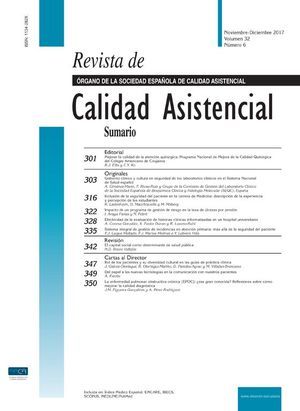The impact of COVID-19 in families and patients with congenital diaphragmatic hernia (CDH) is unknown, this situation has generated uncertainty not only in family members but also in the optimal outpatient follow-up. Telehealth has become a fundamental tool for the follow-up during the pandemic. The objective of this survey is to evaluated the impact of SARS-CoV-2 in families and patients with CDH and the satisfaction with telematic follow-up.
MethodsTelephone survey of patient's caregivers with CHD, aged 1–16 years, followed in neonatal surgery outpatients, from January 31, 2020 to November 15, 2020. The ethical clearance for this study was taken from the Clinical Research Ethics Committee of our Research Institute vide letter number VHIR/239283/01.01.2021.
Results81 surveys of 100 patients with active follow-up were carried out. There were no refusals in any contacted parents. There were 30 contacts (37%), 44.8% at school and 27.6% from cohabiting family members. Four infections (4.9%) were diagnosed, half symptomatic. In 40 patients (49.4%) the follow-up was telematic, with a mean score of 3.1±1.3 out of 5. For future controls, 65% prefer presential follow-up, 25% alternate and 10% telematics. 50.6% reported greater anxiety and 34.6% (28/81) extreme measures of isolation, being more accentuated in the group of 3–6 years (p<0.05).
ConclusionThe impact of COVID19 in patients with CHD is not greater than in the general pediatric population. Although the incorporation of the telehealth was well valued, most of the caregivers prefer the face-to-face outpatient follow-up.
Se desconoce el impacto de la COVID-19 en los familiares y pacientes con hernia diafragmática congénita (HDC). Esta situación ha generado incertidumbre, no solo en los familiares, sino también en el seguimiento óptimo de los pacientes. La telesalud se ha convertido en una herramienta fundamental para el seguimiento durante la pandemia. El objetivo de esta encuesta es evaluar el impacto del SARS-CoV-2 en los familiares y pacientes con HDC, así como la satisfacción con el seguimiento telemático.
MétodosEncuesta telefónica realizada a los cuidadores de los pacientes con HDC, de edades comprendidas entre 1 y 16 años, a quienes se realizó un seguimiento en la unidad ambulatoria de cirugía neonatal desde el 31 de enero al 15 de noviembre de 2020. La autorización ética para este estudio se obtuvo del Comité de Ética de Investigación Clínica de nuestro Instituto de Investigación, con número de referencia VHIR/239283/01.01.2021.
ResultadosSe llevaron a cabo 81 encuestas de 100 pacientes con seguimiento activo. Ninguno de los padres contactados rechazó el seguimiento. Se produjeron 30 contactos (37%): el 44,8% en la escuela, y el 27,6% a los familiares convivientes. Se diagnosticaron cuatro infecciones (4,9%), la mitad de ellas sintomáticas. En 40 pacientes (49,4%), el seguimiento fue telemático, con una puntuación media de 3,1±1,3 sobre 5. Para los controles futuros, el 65% prefirió el seguimiento presencial, el 25% alternativo, y el 10% telemático. El 50,6% reportó una mayor ansiedad, y el 34,6% (28/81) medidas extremas de aislamiento, siendo más acentuadas en el grupo de 3 a 6 años (p<0,05).
ConclusiónEl impacto de la COVID19 en los pacientes con HDC no es mayor en la población pediátrica general. Aunque la incorporación de la telesalud fue bien valorada, la mayoría de los cuidadores prefieren el seguimiento presencial.
Artículo
Comprando el artículo el PDF del mismo podrá ser descargado
Precio 19,34 €
Comprar ahora









